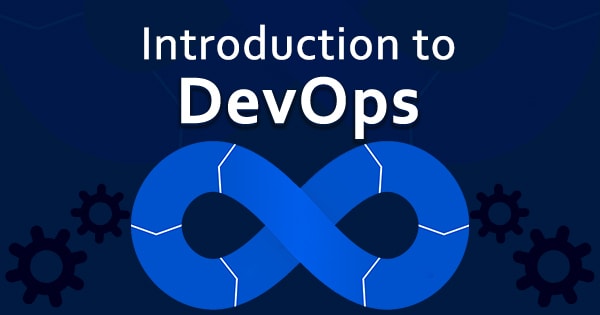Introduction to DevOps: Everything You Need to Know
DevOps is a methodology that enables organizations to deliver software faster and with higher quality. The term "DevOps" is a combination of "development" and "operations," and it refers to a set of practices that bring together the development and operations teams to work in collaboration, with a shared focus on delivering value to customers. In this article, we'll cover everything you need to know about DevOps, including its history, principles, benefits, and best practices.
History of DevOps
DevOps emerged in the early 2000s as a response to the challenges of software development at scale. Traditional development practices were characterized by long release cycles, siloed teams, and a lack of collaboration between developers and operations. This resulted in a slow and error-prone software delivery process, with frequent delays and bugs. DevOps was born as a way to address these challenges by bringing together the development and operations teams and creating a culture of collaboration and continuous improvement.
Principles of DevOps
DevOps is built on a set of principles that guide the way teams work together to deliver software. These principles are:
Culture: DevOps emphasizes a culture of collaboration, communication, and continuous improvement. Teams work together to break down silos and create a shared sense of ownership and accountability for delivering software.
Automation: DevOps relies on automation to streamline the software delivery process and reduce manual errors. Automated testing, deployment, and monitoring help teams deliver software faster and with higher quality.
Measurement: DevOps teams use data and metrics to measure the performance of their software delivery process and identify areas for improvement. This includes metrics like lead time, deployment frequency, and mean time to recovery.
Sharing: DevOps teams share knowledge, tools, and processes to accelerate learning and improve efficiency. This includes creating a shared knowledge base, using common tools and platforms, and sharing best practices.
Continuous improvement: DevOps is an iterative process that emphasizes continuous improvement. Teams are always looking for ways to optimize their software delivery process and reduce waste.
Benefits of DevOps
DevOps offers a number of benefits to organizations that adopt it. These benefits include:
Faster time to market: DevOps enables teams to deliver software faster by streamlining the software delivery process and reducing cycle times.
**Improved quality: DevOps **teams use automated testing and monitoring to detect and fix bugs earlier in the software delivery process, resulting in higher-quality software.
Increased collaboration: DevOps brings together the development and operations teams, creating a culture of collaboration and shared ownership for delivering software.
More efficient use of resources: DevOps reduces waste by streamlining the software delivery process and automating repetitive tasks.
Better customer satisfaction: DevOps enables organizations to deliver software that meets customer needs and expectations more quickly and reliably.
Best Practices of DevOps
To get the most out of DevOps, organizations should follow a set of best practices. These practices include:
Automate everything: Automate as much of the software delivery process as possible, including testing, deployment, and monitoring.
Use version control: Use a version control system to manage code changes and collaborate more effectively.
Implement continuous integration and delivery: Use continuous integration and delivery to automate the software delivery process and reduce cycle times.
Monitor everything: Monitor all aspects of the software delivery process, including application performance, infrastructure health, and user experience.
Emphasize security: Security should be built into the software delivery process from the start, with a focus on continuous security testing and monitoring.
Conclusion
DevOps is a powerful methodology that enables organizations to deliver software faster, with higher quality, and with greater collaboration between teams. By following the principles and best practices of DevOps, organizations can unlock the full potential of DevOps and achieve the benefits it offers. It's important to note that adopting DevOps is not a one-time event but a continuous journey of learning and improvement. Organizations should be willing to embrace change and iterate on their processes to achieve success with DevOps.
In summary, DevOps is a methodology that brings together development and operations teams to work in collaboration, with a shared focus on delivering value to customers. It is built on a set of principles that emphasize culture, automation, measurement, sharing, and continuous improvement. Adopting DevOps offers a range of benefits, including faster time to market, improved quality, increased collaboration, more efficient use of resources, and better customer satisfaction. To get the most out of DevOps, organizations should follow a set of best practices that emphasize automation, version control, continuous integration and delivery, monitoring, and security. By embracing DevOps and continuously iterating on their processes, organizations can unlock the full potential of this powerful methodology and achieve success in delivering software.









Top comments (0)